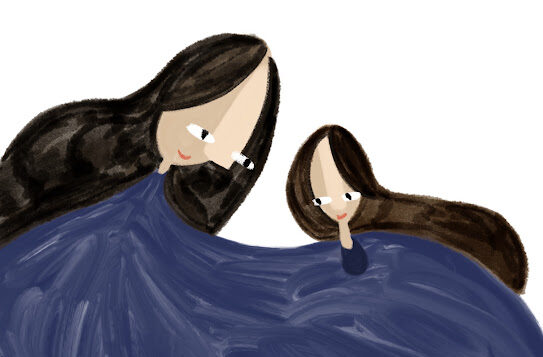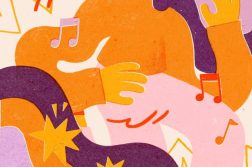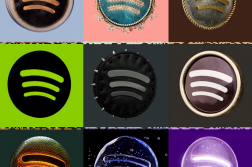When I was 21, I moved from North Carolina to England. It was my way of writing my last letter to a town that had never written to me. I had never much felt like I belonged anywhere, least of all the town in which my parents made their home. At 21, I was annoyed with everything about America, awash with a serious case of “the grass is greener in England,” and determined to forge my own adventure overseas.
But at 25, it’s a little different.
Today, I have what my younger self wanted; I built a life in a new country and I now have a family of my own. But after being so desperate to get away from home, to do things my way rather than my mum’s way, somewhere along the line, time and distance changed my mind. These days, I call my mum every day, often for multiple hours at a time. I haven’t wanted to go back to the US but I knew I missed my mum. And yet I was completely unprepared for what it would be like to see her again after being away for so long.
Missing your mum is one thing but missing your mum when you’re ill is a whole new level. It’s that vulnerable, “Mum please make it better!” feeling that takes you straight back to your childhood. And I’ve never felt more vulnerable— or literally needed my mum more— than when I went blind and had to fly back to the US. And when I stepped off the plane and my mum took charge, I felt a sense of complete peace. Over the next few days, my mum sorted everything for me; she got me the medical care I needed and helped me navigate the world while I was blind.
But, as much as those practical things helped, those 3 weeks I spent with her were about so much more. Once the pain wore off, my visit in the US allowed me to simply spend time with my mum, to discover— as an adult woman myself— how much fun it is to be her friend. Away from the constraints of time differences, conflicting schedules, and WiFi that never works, we could laugh together, uninterrupted; gone were the WiFi glitches that forever had someone laughing at a joke 2 minutes too late or yelling, “I can’t hear you!” in the middle of telling a story.
By being in the same country and in the same house, we got to experience life together instead of telling each other stories after the fact. We got to experience the very best side of female friendship— the kind where each person actively makes the other feel special, where each goes out of her way to say, “You matter to me!” We treated each other to lunches at our favorite restaurants, binged episodes of our favorite shows, and simply thrived on the vibe we created together. Without the pressures of my real life back in England, I could forget about being a researcher, a writer, a cat mum, and just be.
That might sound simple, but after being diagnosed with autism, OCD, and ADHD at the age of 24, it’s rare that I feel free to simply exist. It’s even more rare for me to feel comfortable being my authentic self around people I love, to know that I can exist as a neurodivergent person and feel understood rather than judged, even around my own family. Growing up with undiagnosed mental illness creates a host of challenges, especially when those around you struggle to understand your behavior and have no diagnosed explanation. Unsurprisingly, that can cause a great deal of tension and misunderstandings for parents and children alike; it certainly did with me and my mum.
But as we enjoyed each other’s company during this visit, my mum created opportunities to show me that she understood and accepted me for exactly who I am. She offered apologies I would never have asked for and showed me that she had been reading and learning about the conditions that make me who I am. And, in doing so, she gave me an incredible gift that every person with a mental health condition longs for: the ability to feel safe and seen by the people you love most.
When my mum dropped me off at the airport, we took a goodbye selfie together that left both of us crying behind our sunglasses. As the camera clicked, I realised that this was it: this would be the last time I saw my mum for a while. This goodbye marked the fact that I was leaving her for a life oceans away, a life that didn’t have her in it. That this would be the last time we shared stories over lunch in person. And that goodbye was enough to break my heart.
So, Mum, if you’re reading this, please know that I love you more than I ever have before, that it was harder to leave than you can know, and that, for my future, I want a life that doesn’t involve saying such painful goodbyes to you.




